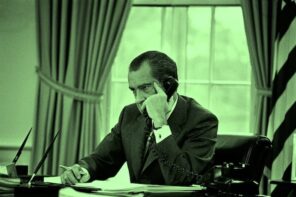The Russian invasion of Ukraine is now over 100 days old. When the war began, there were two competing Orthodox churches in Ukraine: the Orthodox Church of Ukraine (OCU), which was created and granted complete independence by the Patriarch of Constantinople in 2018, and the Ukrainian Orthodox Church-Moscow Patriarchate (UOC-MP), under the authority of Patriarch Kirill of Moscow, the head of the Russian Orthodox Church.
Across these hundred days, it’s become clear that Patriarch Kirill is not going to condemn the violence in Ukraine. In fact, he’s proven himself a reliable supporter of Putin’s regime and its program of aggression. The Patriarch’s support of the war has become increasingly unsustainable for those under his ecclesiastical authority, in Ukraine and beyond. Orthodox priests in Russia have broken rank, speaking out against the war. Prominent Russian Orthodox churches and seminaries in Western Europe, under the authority of the Moscow church, have broken away—or at least thought about it.
Now the UOC-MP, long a supporter of ecclesiastical and cultural unity between Russia and Ukraine, has declared its independence. The move came during a meeting of UOC-MP bishops on Friday May 27th. The UOC-MP has also reached out to the OCU, saying it hoped for dialogue. Though it’s unclear whether the two churches would be able to reach a consensus as significant disagreements remain—as does a deep distrust.
On Sunday May 29th, the Russian Orthodox Synod met to discuss the UOC’s declaration. In the official document outlining the results of that meeting, the Moscow Patriarchate made it a point to assert in its introduction that the decisions “were also made in connection with the continuation of hostilities in Ukraine, increased pressure on the Ukrainian Orthodox Church, the ongoing seizure of its churches, multiple facts of discrimination and violation of the rights of its believers.” [Translation original to RD.]
Despite this, the document has an air of resignation about it, recognizing the legitimacy of the UOC’s Council while contending that any changes must first be approved by Patriarch Kirill.
The declaration of the UOC is the most high-profile defection from Moscow, but not the only one. The Orthodox Church of Lithuania also took steps to break ties with Moscow last week.
And then there’s the case of the Macedonian Orthodox Church (sometimes called the Ohrid Archbishopric). The Church’s convoluted history dates back to the Middle Ages. Most recently it found itself in schism over the past 70 years with the whole of the Orthodox world. But over the past few weeks, it’s been acknowledged by both the Patriarch of Constantinople and the Patriarch of Serbia, bringing it back into communion.
Among other things this Balkan reconciliation sends a quiet message to Moscow that the rest of the Orthodox world can function without it.
All of which demonstrates how increasingly isolated Patriarch Kirill and the Russian Orthodox Church are from the rest of the Orthodox world. The Serbian Orthodox Church has long been an ally of Moscow, after all. What exactly the consequences of this isolation will be remain to be seen.





